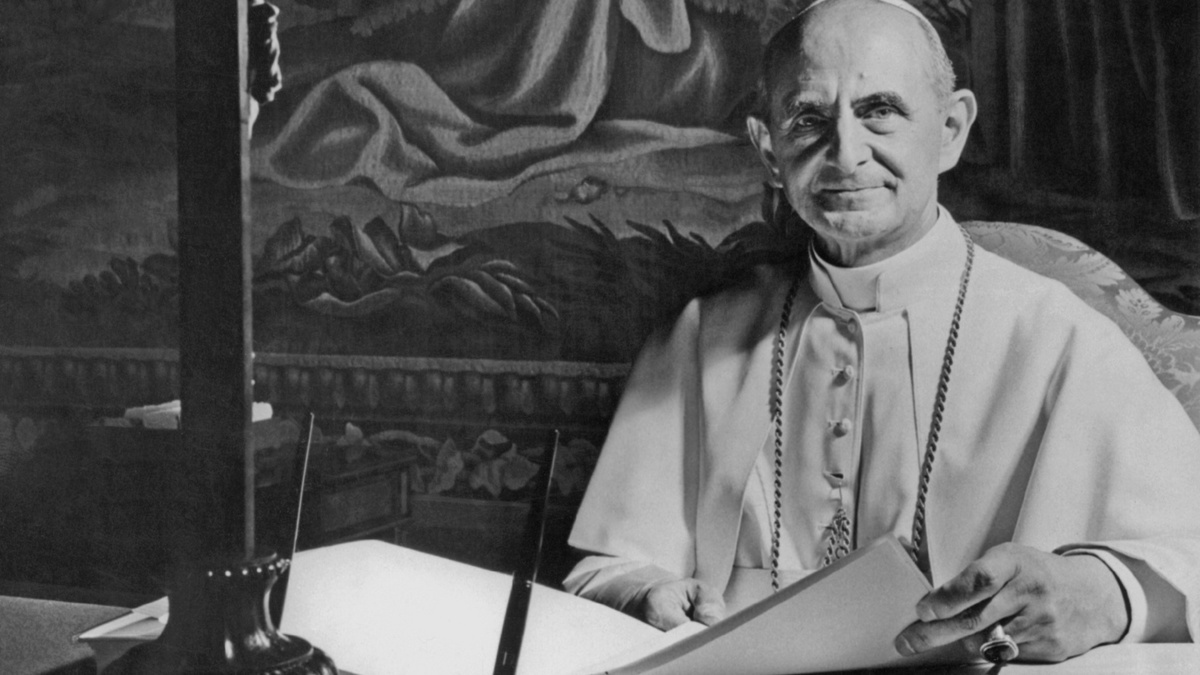
Humanae Vitae, a papal encyclical issued by Pope Paul VI in 1968, addresses the Catholic Church's teachings on birth control, marriage, and family planning. This document sparked widespread debate and remains a significant reference point in discussions about sexual ethics within the Church. Why is Humanae Vitae important? It reaffirmed the Church's stance against artificial contraception, emphasizing natural family planning methods. The encyclical also highlighted the sanctity of marriage and the moral implications of human sexuality. Understanding its content and impact can provide valuable insights into Catholic doctrine and its influence on modern societal norms. Let's dive into 25 intriguing facts about this pivotal document.
What is Humanae Vitae?
Humanae Vitae, meaning "Of Human Life," is an encyclical written by Pope Paul VI. It addresses the Catholic Church's teachings on marriage, responsible parenthood, and the rejection of artificial contraception. Here are some fascinating facts about this influential document.
-
Published in 1968: Humanae Vitae was released on July 25, 1968, during a time of significant social change.
-
Pope Paul VI: The encyclical was authored by Pope Paul VI, who led the Catholic Church from 1963 to 1978.
-
Response to Modern Issues: It was written in response to the advent of the birth control pill and other modern contraceptive methods.
-
Moral Teachings: The document emphasizes the moral teachings of the Church regarding the sanctity of life and the purpose of marriage.
-
Natural Law: Humanae Vitae bases its arguments on natural law, which is the idea that moral principles are inherent in human nature.
Key Teachings of Humanae Vitae
The encyclical outlines several key teachings that have shaped Catholic doctrine on family and sexuality.
-
Procreation and Union: It states that the primary purposes of marriage are procreation and the union of the spouses.
-
Responsible Parenthood: Couples are encouraged to be responsible in their parenthood, considering their physical, economic, psychological, and social conditions.
-
Rejection of Artificial Contraception: The document firmly rejects the use of artificial contraception, advocating for natural family planning methods instead.
-
Openness to Life: Couples are called to remain open to the gift of life, trusting in God's plan for their family.
-
Conjugal Love: It describes conjugal love as fully human, total, faithful, and fruitful.
Controversies and Reactions
Humanae Vitae sparked significant debate and controversy both within and outside the Catholic Church.
-
Mixed Reactions: The encyclical received mixed reactions, with some praising its adherence to traditional values and others criticizing it as out of touch with modern realities.
-
Theological Dissent: Some theologians and clergy openly disagreed with the teachings, leading to a period of theological dissent.
-
Lay Response: Many lay Catholics found the teachings challenging to follow, leading to widespread non-compliance.
-
Impact on Catholic Teaching: Despite the controversy, Humanae Vitae has had a lasting impact on Catholic teaching and continues to be a reference point for discussions on marriage and sexuality.
-
Influence on Later Documents: The encyclical has influenced later Church documents, including those by Pope John Paul II and Pope Benedict XVI.
Scientific and Ethical Considerations
Humanae Vitae also delves into scientific and ethical considerations regarding human life and reproduction.
-
Scientific Advisory Commission: Before writing the encyclical, Pope Paul VI consulted a commission of scientists, theologians, and laypeople.
-
Ethical Implications: The document discusses the ethical implications of separating the procreative and unitive aspects of marriage.
-
Natural Family Planning: It promotes natural family planning methods as morally acceptable alternatives to artificial contraception.
-
Human Dignity: The encyclical emphasizes the dignity of human life from conception to natural death.
-
Technological Advances: It addresses the potential misuse of technological advances in reproduction and the importance of ethical considerations.
Legacy and Continuing Relevance
Humanae Vitae remains a significant document in the Catholic Church, with ongoing relevance in discussions about family, sexuality, and ethics.
-
50th Anniversary: In 2018, the Church celebrated the 50th anniversary of Humanae Vitae, highlighting its enduring significance.
-
Papal Support: Successive popes have reaffirmed the teachings of Humanae Vitae, emphasizing its importance for contemporary society.
-
Educational Programs: The encyclical has inspired educational programs and initiatives aimed at promoting its teachings on responsible parenthood and natural family planning.
-
Global Impact: Humanae Vitae has had a global impact, influencing Catholic communities around the world.
-
Ongoing Debate: The teachings of Humanae Vitae continue to be a topic of debate and discussion within the Church and beyond, reflecting its lasting influence on moral and ethical issues.
Final Thoughts on Humanae Vitae
Humanae Vitae remains a significant document in Catholic teaching. Its emphasis on human dignity, marriage, and responsible parenthood continues to spark discussions. The encyclical's stance on contraception and natural family planning has influenced many believers' lives. Despite controversies, its core message about the sanctity of life and the importance of love in marriage resonates with many.
Understanding Humanae Vitae helps grasp the Catholic Church's views on modern issues. It challenges individuals to reflect on their values and beliefs. Whether one agrees or disagrees, the document's impact on religious and ethical discussions is undeniable. Humanae Vitae encourages a deeper look into how faith intersects with everyday decisions, making it a timeless piece for contemplation.
Was this page helpful?
Our commitment to delivering trustworthy and engaging content is at the heart of what we do. Each fact on our site is contributed by real users like you, bringing a wealth of diverse insights and information. To ensure the highest standards of accuracy and reliability, our dedicated editors meticulously review each submission. This process guarantees that the facts we share are not only fascinating but also credible. Trust in our commitment to quality and authenticity as you explore and learn with us.


